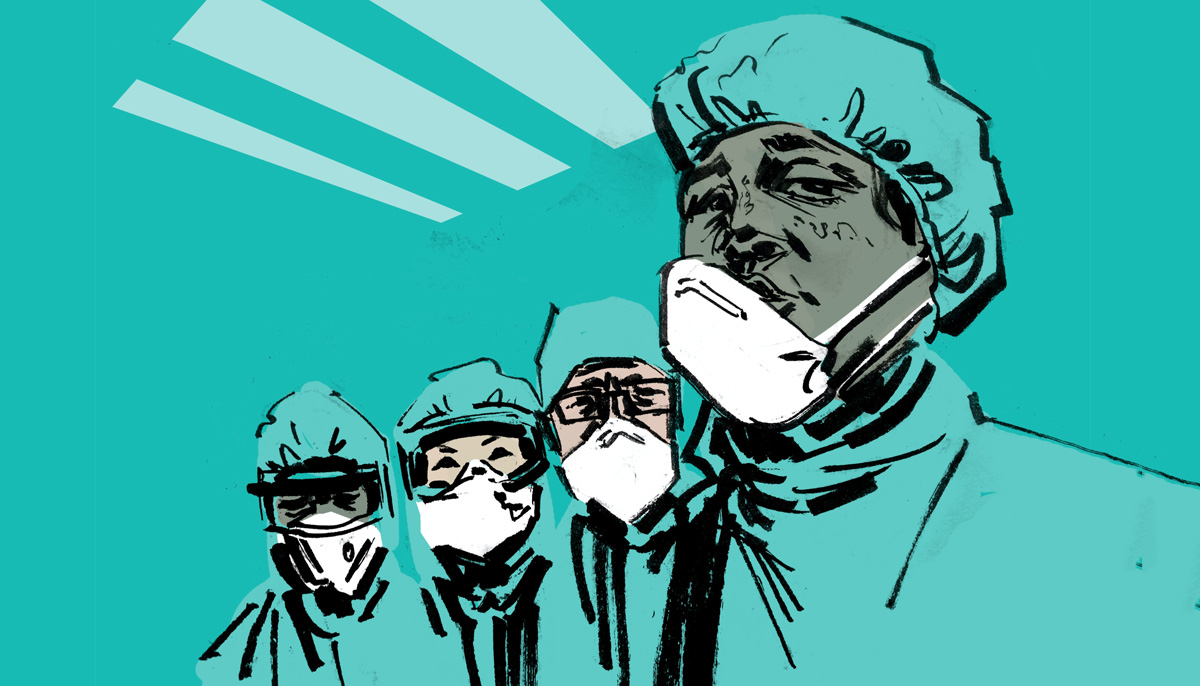Where I live these days—in Muir Beach, California, in the midst of the Covid-19 pandemic—every evening at 8 p.m. people in the neighborhood start to howl like coyotes. They do this for about five minutes. It’s a local ritual to express our appreciation for what we now call “frontline” or “essential” workers.
In this pandemic, frontline workers include doctors, nurses, first responders, and all support personnel in hospitals. But there are also many other essential workers who go forth every day to their jobs, at some risk, so the rest of us can safely sustain our lives—farmers, food delivery people, grocery store clerks, garbage collectors, maintenance and transportation workers, teachers, childcare workers, workers in old age homes, and on and on. There are so many essential workers on whom, we now realize, we depend.
The pandemic has been our teacher, waking us up to what we might not have noticed before.
I know that around the world people have been practicing versions of this ritual, honoring and remembering essential workers every day. I understand this expression of appreciation as the basic bodhisattva practice of gratitude for sentient beings, whose presence makes us who we are.
In this sense the pandemic has been our teacher, waking us up to what we might not have noticed before. We won’t be able to go back to the way things were. The truth is, in our world (especially here in the United States) essential workers have not been valued. If economic reward is the measure of what a society values—as it surely is, at least in part—then it’s clear that we value entrepreneurs, investment bankers, software engineers, hedge fund managers, and celebrities far more than we value the essential workers our lives depend on.
In the 1980s, the United States created an entrepreneurial economy. Economic rules and laws were changed to benefit business investment over other areas of society. Entrepreneurs could now innovate wildly, making big bets for big gains, and they became our new cultural heroes (before this, business was considered rather boring and unimaginative). But the effects of this value shift, exciting at the time, have become unsustainable. It has resulted in enormous income inequality and a crippling of governments’ ability to handle large social problems like poverty, climate change—and pandemics.
Now that the coronavirus crisis has opened our eyes, we are ready for a bodhisattva shift from an entrepreneurial economy to a caring economy, one that values essential workers, pays them fairly, and ensures that their lives are no longer subject to health and financial ruin any time the economic winds shift.
What we call free market capitalism is often presented as the natural state of things. Government, it is said, is not natural; it limits our freedom. But in truth the economic system we have now isn’t natural—it’s built on choices we have made about what we value most. These choices have changed in the past and they can change again. This doesn’t require revolutions or ideologies. Only a sense of purpose, a commitment to caring, and a collective desire that social policy follow that commitment. It is not so difficult.
We meditate to let go of the fantasy that we are merely separate individuals. Now the pandemic has made our interdependence—our dependence, in fact—even clearer. Knowing who we really are, we take up the bodhisattva vow that calls us forth into the world to help. Now, perhaps, we are ready.

